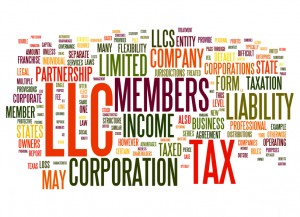 When one family member lends money to another, both parties often believe that the deal they make is just between the two of them. But in the eyes of legal and tax authorities, the lending business is just that—a business. These seemingly private activities can come with some very business-like strings attached.
When one family member lends money to another, both parties often believe that the deal they make is just between the two of them. But in the eyes of legal and tax authorities, the lending business is just that—a business. These seemingly private activities can come with some very business-like strings attached.
Here you’ll learn a few items that you should keep in mind if and when you decide to make a loan to a family member, friend or some other individual in your life.
Think About How the IRS Treats Interest
In a deal between relatives or friends, the “lender” sometimes decides not to charge interest on the loan. Perhaps the loan amount is small, or perhaps there is a feeling of ill will that parties tie to the thought of interest.
But if you do not charge interest, or if you charge a rate lower than something called the Applicable Federal Rate (AFR), be prepared for tax consequences. The IRS will tax the maker of the loan on the amount of interest that the lender should have charged. Continue reading

 The decision to buy a vehicle is one of the most significant purchase decisions a person makes. For most Wisconsin families, car payments make a big impact on family finances. Add unexpected problems with the car, and costs skyrocket due to repair costs and expenses associated with not having reliable transportation.
The decision to buy a vehicle is one of the most significant purchase decisions a person makes. For most Wisconsin families, car payments make a big impact on family finances. Add unexpected problems with the car, and costs skyrocket due to repair costs and expenses associated with not having reliable transportation. The legal doctrine of adverse possession allows a person or entity to assume ownership of another’s property if that person or entity adversely possessed the land and certain conditions have been met. One might think that this old common-law doctrine is no longer relevant. Yet, adverse possession claims continue to cause numerous
The legal doctrine of adverse possession allows a person or entity to assume ownership of another’s property if that person or entity adversely possessed the land and certain conditions have been met. One might think that this old common-law doctrine is no longer relevant. Yet, adverse possession claims continue to cause numerous  It seems like challenges to
It seems like challenges to  If you
If you  More Wisconsin-based entrepreneurs are taking the initiative to create their own business entities than ever before. And why shouldn’t they?
More Wisconsin-based entrepreneurs are taking the initiative to create their own business entities than ever before. And why shouldn’t they?  If you receive a phone call from someone claiming to be an IRS tax collector, you have a right to be suspicious. Since 2013, con artists have stolen tens of millions of dollars from innocent people by claiming to be collecting back taxes. The Treasury Inspector General for Tax Administration has received nearly 900,000 complaints regarding phone scams of this type.
If you receive a phone call from someone claiming to be an IRS tax collector, you have a right to be suspicious. Since 2013, con artists have stolen tens of millions of dollars from innocent people by claiming to be collecting back taxes. The Treasury Inspector General for Tax Administration has received nearly 900,000 complaints regarding phone scams of this type. As an
As an  So you’re starting a new business? It can’t be that difficult…can it? You do the research and decide that a Limited Liability Company (LLC) is the best entity for your new venture. You may event go online and register your new entity with proper state agency. But use caution. Before you open the doors of your new business be sure you consult with a qualified Business Law Attorney to ensure that you’ve covered all the bases.
So you’re starting a new business? It can’t be that difficult…can it? You do the research and decide that a Limited Liability Company (LLC) is the best entity for your new venture. You may event go online and register your new entity with proper state agency. But use caution. Before you open the doors of your new business be sure you consult with a qualified Business Law Attorney to ensure that you’ve covered all the bases.  There are many reasons why we make gifts to our children or loved ones. Whether we’re helping them with college tuition, buying that first home, or assisting with a medical or financial hardship, we’re compelled to take care of our family. As an Estate Planning Attorney I find that many of my clients in their senior years often feel the need to begin gifting their assets to their children or grandchildren. But great care should be taken when making gifts in our later years. Careful planning with an attorney experienced in Estate Planning and Elder Law is necessary to help ensure that your gifting is not jeopardizing your eligibility for the Medicaid program should you ever need assistance with your medical expenses or long-term care needs. When I explain this to my clients, their first response is always to remind me of the annual gift tax exclusion, which allows them to gift a certain sum of money to each child and/or grandchild each year without gift tax consequences. Well, that’s true, but read on.
There are many reasons why we make gifts to our children or loved ones. Whether we’re helping them with college tuition, buying that first home, or assisting with a medical or financial hardship, we’re compelled to take care of our family. As an Estate Planning Attorney I find that many of my clients in their senior years often feel the need to begin gifting their assets to their children or grandchildren. But great care should be taken when making gifts in our later years. Careful planning with an attorney experienced in Estate Planning and Elder Law is necessary to help ensure that your gifting is not jeopardizing your eligibility for the Medicaid program should you ever need assistance with your medical expenses or long-term care needs. When I explain this to my clients, their first response is always to remind me of the annual gift tax exclusion, which allows them to gift a certain sum of money to each child and/or grandchild each year without gift tax consequences. Well, that’s true, but read on.